The Green Lake watershed has many active partners monitoring environmental quality, implementing best management practices, and educating the public.

The Nelson Institute supports interdisciplinary research in environmental studies. Institute students and faculty have worked with Green Lake stakeholders to compile information for this website. The goal of this information system is to support watershed management through the coordination of research efforts and the creation of a central database. Read more about the Nelson Institute’s Green Lake research initiative.
![]()
Green Lake Association (GLA) is a nonprofit organization working towards the conservation of Green Lake and its watershed with a singular focus of improving water quality. This organization educates the public about issues relating to water quality and Green Lake. GLA engages with the community, building a strong connection to Green Lake so that people will contribute to protecting the health of the lake. Contact: Stephanie Prellwitz, Executive Director, stephanie@greenlakeassociation.org.
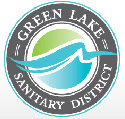
The Green Lake Sanitary District (GLSD) leads lake management by funding programs and coordinating activities for reducing nonpoint source pollution, harvesting aquatic plants, and monitoring water quality. The District also arranges solid waste collection in nearby townships and treats wastewater from over 1,400 homes. Contact: Lisa Reas, Sanitary District Administrator, ljreas@glakesd.com.
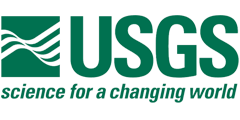
The United States Geological Survey (USGS) partners with the Green Lake Sanitary District to monitor lake and tributary hydrology and water quality. The USGS also helps with computer modeling to track pollutants. Contact: Dale Robertson, Research Hydrologist.
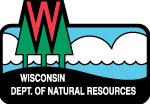
The Wisconsin Department of Natural Resources (DNR) develops a list of impaired waters under Section 303(d) of the Clean Water Act, awards grants for watershed and lake protection programs, and stocks and monitors fish populations. They also support water quality and aquatic invasive species monitoring through citizen programs. They work to ensure that lake management efforts are science-based and effective. Contact: Scott Bunde, Fisheries Biologist, Scott.Bunde@wisconsin.gov.
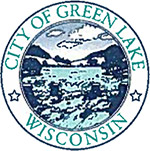
The City of Green Lake Public Works Department oversees stormwater management and wastewater treatment within the city. Contact: Jason Carley, Public Works Director, j.carley@ci.greenlake.wi.gov.

The City of Ripon‘s water department treats the city’s wastewater and monitors the quality of discharge that enters Silver Creek, Green Lake’s largest tributary. The city also maintains its stormwater system, which captures and discharges urban runoff. Contact: Allyn Dannhoff, Director, adannhoff@cityofripon.com.

The Fond du Lac County Land and Water Conservation Department works with landowners to implement soil and water conservation programs. These programs focus on ways to manage land that will reduce pollution. Contact: Bradly Murry, County Conservationist, bradly.murry@fdlco.wi.gov.

The Green Lake County Land Conservation Department provides assistance to landowners for soil and water conservation. They help implement programs to preserve wildlife habitat, wetlands, and farmland, and work with landowners to enroll in both state and federal conservation programs. Projects focus on ways to manage land to reduce runoff. Contact: Todd Morris, County Conservationist, tmorris@greenlakecountywi.gov.
![]()
The National Resource Conservation Service (NRCS) (formerly the Soil Conservation Service) provides financial assistance and other support for farmers looking to implement Best Management Practices. For the past 50 years, the NRCS has been working with farmers and helping to improve the watershed of Green Lake. The NRCS has a presence in both Green Lake County and Fond du Lac County. Contact: Caleb Zahn, caleb.zahn@wi.usda.gov, or Cory Drummond, cory.drummond@wi.usda.gov.
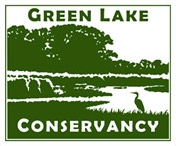
Green Lake Conservancy is a land trust that manages areas important for watershed protection. They identify environmentally-sensitive areas and then work to protect and conserve those lands. Through conservation easements and direct acquisitions, the organization is able to preserve biodiversity. Contact: Melissa Curran, President, melissa.curran@stantec.com.

Golden Sands Resource Conservation & Development works with DNR and county governments to protect Wisconsin’s natural resources. They implement a regional aquatic invasive species prevention program. Contact: Andrew Senderhauf, Regional Aquatic Invasive Species Coordinator, Andrew.senderhauf@goldensandsrcd.org.
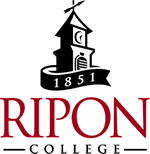
Ripon College prepares students of diverse interests for lives of productive, socially responsible citizenship. Biology and environmental science classes at Ripon College have often undertaken research efforts to better understand the ecology and biological diversity of Green Lake. Students have also undertaken research about Green Lake for theses and senior projects.